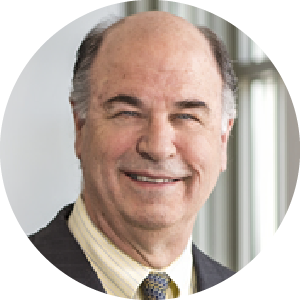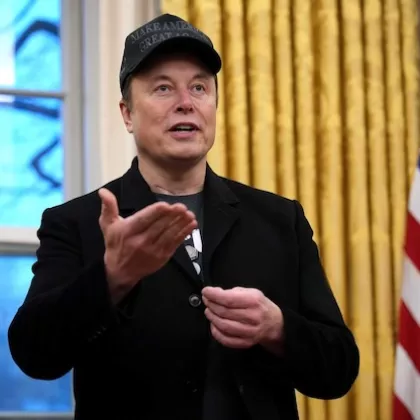Cliff Smith’s Top 10 concerns for 2023

Cliff Smith’s Top 10 concerns for 2023
April 12, 2023 | By Professor Cliff Smith
Recently, Dean Yeltekin invited me to share insights and impressions about the year ahead in a webinar. I have greatly missed teaching since I retired from a 45-year-career at Simon Business School, so returning to speak to students, faculty, and alumni is about as good as it gets for me.
With apologies to David Letterman, I have organized my thoughts into a Top 10 list of social, political, and economic concerns that merit closer scrutiny.
Editorial note: The views and positions expressed below are solely those of the author.
Here are my Top 10 Concerns for 2023:
#10: Unemployment
Today’s unemployment rate is about 3.5%, which is a low figure by historical standards. Even if zero unemployment was attainable, it would never be ideal. If someone is in the process of moving from one job to another, for example, they are counted as unemployed during that transition. Economists call this frictional unemployment, and it is often a good thing, as people are moving to better jobs. It is also beneficial, from an employer perspective, to have a pool of available talent to hire when undergoing business expansion.
But while having a permanent pool of unemployed workers might be economically valuable, it can be personally harrowing if you are one of the unemployed and trying to stay afloat. I’m concerned that as the Federal Reserve continues its efforts to combat inflation, we will see the unemployment rate rise. The result is a huge opportunity cost for people who would like to be productive but can’t find the right fit. It certainly highlights the importance of maximizing control over your career by investing in broad, flexible skills that will be useful no matter which way the job market turns.
#9: Educational expenses
When I went to college and graduate school, the costs of attending were measured in tens of thousands of dollars. Now they are measured in hundreds of thousands of dollars. This represents a significant barrier to entry, especially those who start off with fewer resources. Rising costs over the 50 years in which I have been involved in higher education reflect how limited technological innovation has been compared to other industries.
Fortunately, the technological improvements forced by the COVID-19 pandemic have expanded access to educational materials. I recently heard about a young physics professor who was assigned to take over an introductory class only weeks before the term started. He scrambled to come up with a plan before discovering a similar introductory class that was taped and released by a physics professor at Cal Tech. He elected to have his students watch the Cal Tech videos before each class and then used class time for review and assistance. I’m not sure that this model would be appropriate for all courses across all schools. But it’s possible that by leveraging this sort of technology, universities might be able to select the best teachers out of a national pool, dramatically expanding their access to talent. Labor costs would shift, to be sure. I would expect salaries for superstar teachers to rise substantially, while salaries for more average teachers would likely fall. But this kind of innovation might be what it takes to lower the overall cost of higher education.
#8: Trump, Biden, and 2024
Many believe that the current frontrunners for the 2024 presidential race are President Biden and former President Trump. I have significant, though not equal, concerns about both candidates. Trump incited an insurrection at the U.S. Capitol and then failed to send in additional forces to stop the violence. In my opinion, this behavior should disqualify him for another term in the White House.
Biden, on the other hand, is the oldest sitting president in the history of the country. I tend to put substantial weight on historical precedent. Trying to forecast a person’s acumen six years from now when they will be in their 80s is difficult. Political parties need to reckon with aging leadership. This is not a decision that applies only to political candidates. When I was on the board of Home Properties, we adopted age limits for directors when standing for election. Part of the reason for age limits is to avoid having to tell someone that they are slipping.
#7: Immigration
There are immigrants who move to the U.S. for greater work opportunities. Many exhibit more initiative and risk tolerance than the average American, and our country is better off for them. Others move to the U.S. for access to a more expansive network of social programs – welfare, AFDC, food stamps, rent assistance, etc. It is harder to argue that they present a net benefit. I’m concerned that after Biden criticized Trump’s immigration policies on the campaign trail, his administration has failed to steer the country in a new direction on this issue. Closer to home, I’m also concerned about the restrictions placed on our students who move to the U.S. for educational opportunities. Institutions like the University of Rochester attract the best and brightest students from around the world. Many would like to remain permanently, but they are forced to return home after graduation or a few years of work. This needs to change.
#6: Supreme Court rulings and legislation imposing limitation on personal decisions
The U.S. Supreme Court’s decision to overturn Roe v. Wade has engendered countless changes to abortion access around the country. From my perspective, these restrictions are unwise regardless of where you land on the abortion debate. Our legal system functions because most people voluntarily obey laws. But when at least half of the population disagrees with a law and a good portion decide not to abide by it, we run into major problems as a society.
#5: Federal Reserve and a soft landing
Most discussions of the Fed’s attempts to engineer a soft economic landing—in other words, clamp down on inflation without sending the country into a recession—focus on the Fed’s control of interest rates. What these discussions fail to mention is that the Fed only controls one rate—the discount rate at which it lends money to banks. And even that is not a “clean” rate. If a well-functioning, well-capitalized bank were to show up at the discount window and ask for a loan from the Fed, it might still find the process of securing that loan so onerous that it pursues other options.
The Fed can affect other rates more indirectly through controlling the money supply, but that linkage is not exactly rigid. Moreover, the Fed’s control over the money supply has become more complicated because of technological advancements in financial markets. Widespread credit card use (as well as the prospect of expended use of cryptocurrency) has reduced desired cash holdings, resulting in an even narrower set of control mechanisms for the Fed to use. Expecting the Fed to navigate a soft landing is like expecting an airline pilot to navigate a soft landing with no rudder and half the plane’s engines out. I’m skeptical of its ability to be completely successful.
#4: The debt limit and financing government deficits
The U.S. has been running deficits since the World War II era, and they must be financed. No one should be surprised by the current political brinksmanship surrounding the raising of the debt limit, but failing to reach an agreement would be inexcusable. If the U.S. defaults on payments to lenders, it would be an unmitigated disaster for the U.S. economy and a major shock to global capital markets.
#3: Government spending and congressional gridlock
The optimal level of government expenditure is easy to describe: It occurs when citizens collectively value each project at a level that is higher than its cost. This policy is frequently violated in Congress. Currently, for example, a large naval vessel that the Pentagon does not want is under construction. This type of spending is usually the direct result of “logrolling”– where a member of Congress cuts deals with other members, agreeing to vote to fund projects that generate jobs and revenue in their district without providing any larger collective benefit.
Many forecast that with a Republican majority in the House and a Democratic majority in the Senate, the next two years will be characterized by gridlock and inaction. I have a slightly rosier view of this situation than most. In a gridlocked Congress, the projects that get approved are more likely to pass the public benefit test (i.e. benefits exceed costs). While gridlock has its downsides, it may be an opportunity to refocus spending on things that collectively make us better off.
#2: Taxation
As an undergraduate and PhD student, I took macroeconomics classes that discussed the tax code in fairly general and abstract terms. After 45 years at Simon, it is the details I find most fascinating and frequently quite useful. When I was employed by Simon, I was paying both federal and state taxes. Over that time, I contributed as much as possible to my retirement account in expectation of a lower income after retirement. Ideally, people manage their finances in a way that equalizes their effective marginal tax rate over different periods of time. But this strategy does not always work. For example, in 2017, the Trump administration signed the Tax Cuts and Jobs Act into law, instituting a cap on the state and local tax (SALT) deduction that allows taxpayers in high-tax states to deduct local tax payments on federal returns. This changed my effective tax rate overnight. I can think of a number of similar examples. The best laid plans can quickly go awry.
#1: Ukraine vs. Russia
The ongoing military conflict in Ukraine is easily the most concerning item on my list. One year after invading Ukraine, Vladimir Putin seems to retain solid control of the Russian government, including its military. So far, sanctions imposed on Putin and the autocrats who support him, as well as sanctions that hit entire sectors of the Russian economy, have failed to move his position. He also seems unconcerned by the lack of volunteers for the Russian Army and the substantial number of draft-age men who have defected.
Under Putin’s leadership, Russia invaded and took over Crimea (part of Ukraine) in 2014 in only a month. There was very little pushback by the West. I worry that too little resistance by the West in the current conflict could embolden him to set his sights on further expansion. One opportunity to push back harder might involve Ukraine’s NATO application. Ukraine had applied for admission prior to the invasion, but I have not seen any serious discussion of NATO moving forward on its application. I don’t pretend to be an expert in probabilities here. Putin may decide that he is ill-equipped to fight the entirety of NATO if Ukraine joins, or he may turn to nuclear warfare. I wish I could see a more constructive path out of this conflict, but when you’re dealing with someone as unpredictable as Putin, peace is a lofty goal.
To watch the full presentation, click here.

Cliff Smith is the Louis and Henry Epstein Professor Emeritus and Professor of Finance and Economics at Simon Business School.
Follow the Dean’s Corner blog for more expert commentary on timely topics in business, economics, policy, and management education. To view other blogs in this series, visit the Dean's Corner Main Page.











